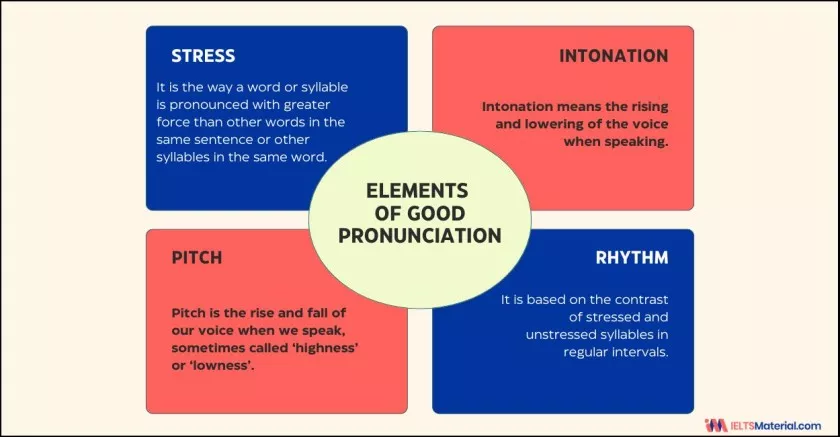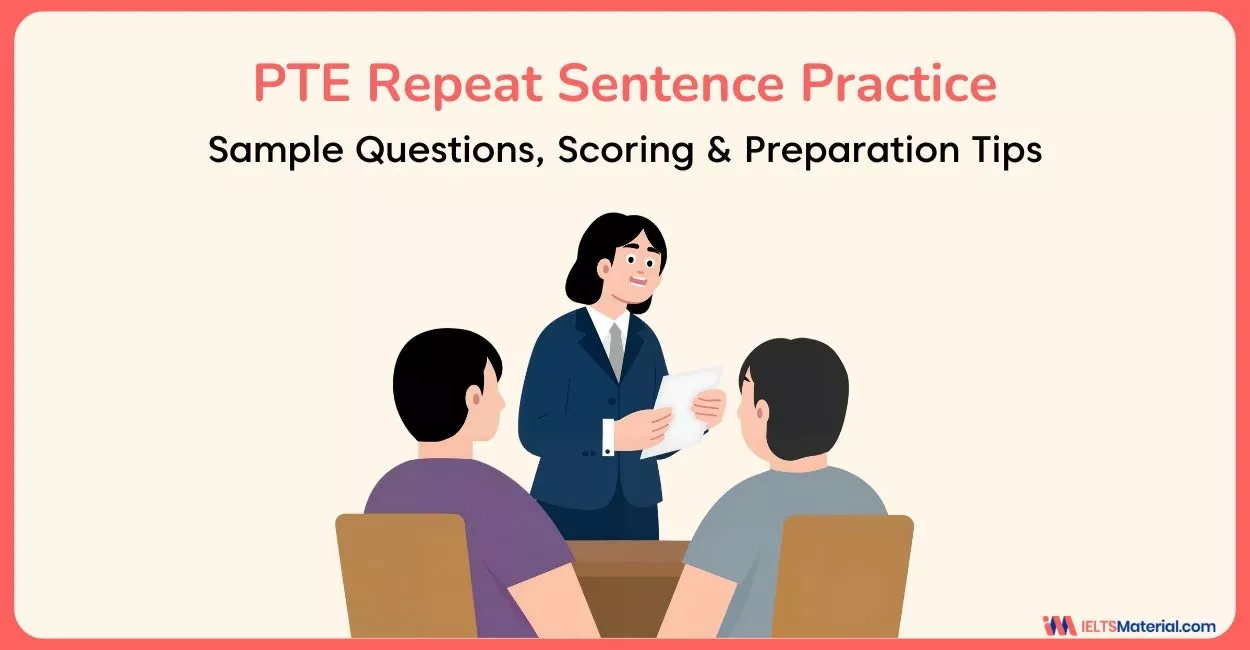Top Ways to Handle OET Pronunciation Test
Pronunciation is an important factor for OET. Learn the top ways to handle OET pronunciation test effectively with practical tips, samples, and common errors to avoid to improve intelligibility, stress, and intonation & boost your OET Speaking score.
Table of Contents

Limited-Time Offer : Access a FREE 10-Day IELTS Study Plan!
Learning a foreign language is a challenging task, especially if it is for an exam like OET. There are different factors to consider, such as harder grammar rules, additional vocabulary, and even different pronunciations. Therefore, it is common to be concerned about speaking and participating in long conversations as an English second language learner.
Fortunately, this detailed guide explains how pronunciation is assessed in OET, provides practical strategies, realistic samples, and highlights common mistakes that candidates, especially healthcare professionals, must avoid.
Importance of Pronunciation for a Language Learner
Many English language students experience difficulties articulating and pronouncing words correctly. This is due to the fact that English has numerous difficult sounds, such as “th” and “ch.” It is critical to remember that more speaking practice does not automatically imply greater pronunciation practice. These two topics are distinct.

Pronunciation is the link that connects you to a native English speaker. When you begin to speak, it is the first thing that everyone observes about you. Messages can become lost or misinterpreted if they are not properly pronounced. Because they don’t grasp what is being said, the listener may become frustrated!
OET Pronunciation Test and Its Significance
Although OET does not include a separate pronunciation test, it is a key aspect of exam preparation, especially for the OET Speaking test. The OET Speaking test is designed to be as similar to a real-life consultation as feasible, and pronunciation is about making sure you sound clear and understandable. As a result, how and what you say as a medical practitioner will make or break the session.
You will be graded based on how well you communicate with your patient and other health professionals. If your pronunciation is occasionally unclear to others, you should work on improving it so that your patient in the OET exam and the patient in the OET can easily hear you. If your English pronunciation is occasionally imprecise, it may lead to a breakdown in communication with your patient.
On the other hand, other people can readily comprehend what you’re trying to communicate when you use the proper sounds when speaking. If you have excellent grammar and a wide vocabulary, proper pronunciation will enable others to hear and comprehend you more clearly. It will also improve your listening skills since you will learn to distinguish and recognise what people are saying.
Of course, it can be difficult to feel comfortable speaking a second language. You may initially feel shy or concerned about committing a blunder or being misinterpreted.
Fortunately, good pronunciation will boost your confidence. You’ll be able to join in conversations and get to know your coworkers, patients, and others better. In this sense, having good pronunciation can help you make connections faster. Speaking in English will no longer be a chore but rather a pleasurable approach to enhancing your English while building significant connections with others.
Tips to Improve Pronunciation for OET
To improve your pronunciation, the essential thing is to practise regularly and diligently! Here are our tips to get you started:
- One thing to remember about this widely used language is that what is written down is not always what is heard. In contrast to many other languages, not all words are pronounced phonetically. You must not only struggle with the varied and weird pronunciation standards, but you must also be aware of the exceptions to these same rules. To make matters worse, many words are spelt differently but sound the same. These are referred to as homophones. For example – There/Their/They’re.
- Record yourself speaking. This is a terrific method to hear how you sound when you speak. Try filming yourself reading a brief magazine article or a page from a book. How do you come across? Are you simple to understand? Do you say your words correctly all the time? This short activity will assist you in identifying the words and sounds that you are having difficulty with so that you can practice and improve.
- Practice with a native or fluent speaker. It’s impossible to beat practising with a native speaker. Do you know someone who sounds the way you do, wants to talk in English, or tries to just speak the language you’re learning with them? Slowing down your voice allows you to focus entirely on your pronunciation.
- However, it is not necessary to drop your natural accent when pronouncing. It is about making your English sound clear and distinct so that no one may misunderstand what you are saying. Your English will become easier to comprehend if you learn to pronounce the correct sounds. You will sound more natural and will learn to speak English faster.
- Focus on learning common difficult-to-pronounce medical terminology. Words like “hygiene,” “fat,” and “diabetes”. Complex words are frequently mispronounced by ESL non-native English speakers. Clearly, pronouncing terms like this is critical for a high OET speaking score.
- Avoid using medical jargon. Make sure you’re not utilising any technical or medical jargon. Children, for example, will not comprehend that the word stool means ‘poo.’ You will need to use alternate terminology for medical phrases or words that are not generally used, such as this.
Common Pronunciation Errors to Avoid in OET
Besides learning the ways to improve pronunciation for OET Speaking, it is also important to know and avoid the common mistakes that aspirants make.
- Speaking too fast: When you speak too quickly, individual sounds and word boundaries become unclear, making it difficult for the examiner or patient to understand the message accurately. In OET, intelligibility is more important than speed, so rushing through sentences often lowers the speaking score.
- Using a flat or robotic tone: A flat, emotionless tone makes speech sound unnatural and impersonal, which is inappropriate in patient-centred communication. Since OET evaluates how effectively you communicate in healthcare settings, a lack of intonation can reduce clarity and weaken your professional impression.
- Incorrect stress on medical words: Placing stress on the wrong syllable in medical terms can confuse listeners or force them to mentally reprocess what you said. In clinical communication, unclear stress patterns may affect understanding of instructions, medication names, or procedures.
- Swallowing word endings: When you drop final consonant sounds, such as ‘–s’, ‘–ed’, or ‘–t’, important grammatical information is lost. This can lead to misunderstandings about tense, quantity, or instructions, which are critical in medical contexts.
- Translating mentally from your first language: Thinking in your native language and translating into English often leads to unnatural sentence rhythm and incorrect pronunciation patterns. This habit slows down speech and increases the likelihood of mispronouncing medical and functional vocabulary during role-plays.
Preparing for OET and need the best guidance?
Check out the top-notch Occupational English Test (OET) programs here!
Samples for Practice for OET Pronunciation Test
Given below are certain OET Speaking samples that will help you to practise for improving pronunciation for the Speaking test.
OET Sentences for practising pronunciation
- I want to make it clear that I believe some clinics are very careful and do good work.
- I don’t think that the way HIV is being portrayed in the media is at all helpful.
- One group of scientists says that reducing red and processed meat is a top priority for your health and the planet. Another says these foods pose no problems for health.
- As a nurse who researches exercise, I can tell you that it is likely the closest thing to a fountain of youth or a magic pill that you will have in your lifetime.
- This is a compelling idea, fuelled by examples of parasites seemingly controlling the behaviour of their hosts, such as the Ophiocordyceps fungus that infects ants.
- Despite the countless challenges that patients and medical staff face in the remote and low-resource environment of Old Fangak, the hospital remains the best hope for many people in urgent need of healthcare.
OET Paragraphs for practising pronunciation
- Policies for Health in Schools
A school is a centre of a community, a place where children and teachers come together. In addition to being hubs of education, schools are also gardens for germs. As such, school administrators and educators have the responsibility of designing and implementing policies to promote health and hygiene. In addition, nutrition also plays an important role in school health policy; every school has a cafeteria, as well as the responsibility to provide and instruct children on healthy eating. Apart from being an important cornerstone of a school’s administrative policy, school health can play a part in the social and psychological atmosphere of the community. When teachers and staff follow well-designed health policies, the children will benefit from learning by example.
- Health Education
As hubs of knowledge and practice, schools should pair a sound health policy with a curriculum of instruction that teaches students about the importance of health, hygiene and nutrition. Classroom instruction teaches students about how to develop positive attitudes and life skills that will allow them to make decisions about their own health. Good health education focuses on practising skills for dealing with disease, pregnancy, first aid, intoxicants, and illegal substances. Thus, health education and policy go beyond the basic standards for safety. Faculty and staff should instil a positive psycho-social environment in schools so that children feel safe and healthy.
To conclude, in case you were of the idea that pronunciation is not your cup of tea, now you can act on it by making the above-given tips a part of your OET Speaking preparation. Practise for the OET pronunciation test with diligence and regularity, and you will definitely achieve your desired OET scores.
Useful Links:
Frequently Asked Questions
Does accent matter in the OET pronunciation test?
What pronunciation score is needed for an OET B grade?
How can I improve pronunciation for medical terms?
Is fast speaking considered fluent in OET?
Should I copy a British or Australian accent?
Other OET Exam Related Articles

Start Preparing for IELTS: Get Your 10-Day Study Plan Today!
Explore other IELTS Articles

Haniya Yashfeen

Kasturika Samanta
Recent Articles

Kasturika Samanta

Haniya Yashfeen

Kasturika Samanta







Post your Comments